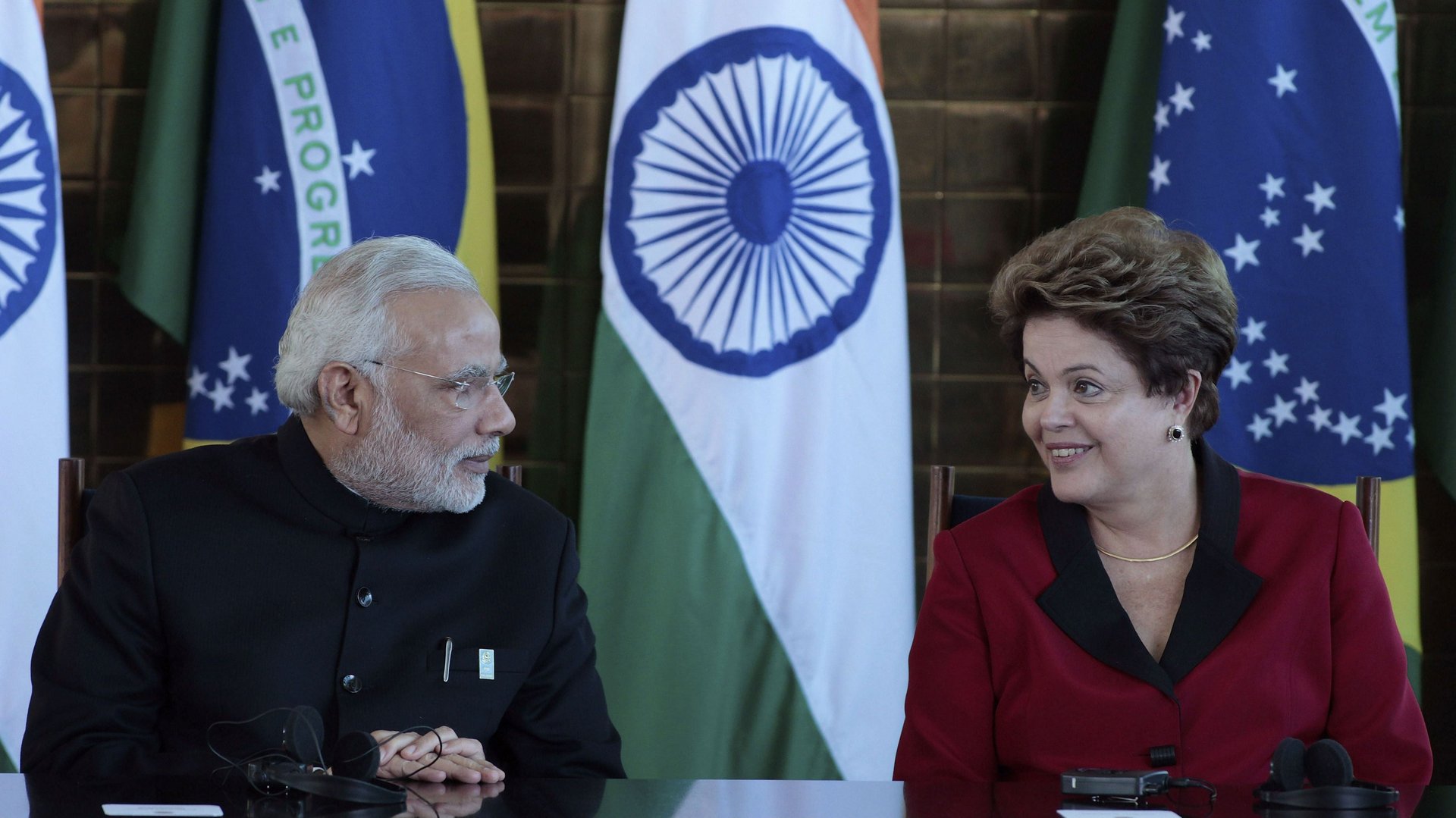What Brazil can learn from Modi’s brand of realistic nationalism
There was once a time when an enthusiastic Brazil president Luiz Inacio Lula da Silva said in each of his numerous trips abroad that the 21st century would be Latin America’s.


There was once a time when an enthusiastic Brazil president Luiz Inacio Lula da Silva said in each of his numerous trips abroad that the 21st century would be Latin America’s.
Those were good times for the subcontinent’s image. Now there are more shadows than lights on the horizon. Another headstrong leader, India’s Narendra Modi, openly declared this “the Asian century” during his recent visit to the United States.
Modi was given pop-star treatment in New York, at a reception at Madison Square Garden, which was attended by 18,000 Indians living in the United States.
Meanwhile, in Brazil, foreign policy has been completely absent from the election campaign. And Dilma Rousseff, the new favourite for re-election, played to the tunes of the United States in her recent visit to the same New York where Modi shined.
It’s a pity.
After all, Dilma’s chancellor Luiz Alberto Figueiredo tells anyone who will listen that maintaining good relations with the United States is important for any (serious) country in the world.
It is good that Dilma has reacted to US espionage, revealed by Edward Snowden. Although that issue has been put in the freezer during this election campaign.
To overcome this, it would be ideal to urgently reschedule the state visit that was suspended last year, due to the espionage.
Modi had even more reason to be on bad terms with the USA—his visa was revoked years ago for his alleged (or real) failure to stop the massacre of Muslims in the state (Gujarat) he then ruled.
However, it was what the United States said in a statement [with India] jointly signed by Barack Obama that could work for the Brazil-US relationship.
“Our partnership aspires to be larger than merely the sum of its parts, (…) As nations, as people, we aspire to a better future for all; one in which our strategic partnership also produces benefits for the world at large.”
Modi did not need to bow to the United State’s wishes to succeed. He gave no commitment, for example, to join the coalition that is attacking the Islamic State.
Neither did he give in on trade issues where India and the United States have serious discrepancies.
The purpose of his visit—as, indeed has been the practice in presidential diplomacy (Prime Minister, in this case)—was to revive American investments in India, which fell 60% in the last five years. “Come before it’s too late,” he told the businessmen that he met.
Like India, Brazil also maintains a “strategic partnership” with the United States, which has not been revoked by the espionage case (maybe dented, although slightly).
So, common sense says that Dilma (or whoever is the next president) quickly take heed of Modi’s example, whose impeccable nationalist credentials do not prevent him from having common sense.
Brazil is mature enough to have more than just a little footprint on the international stage.